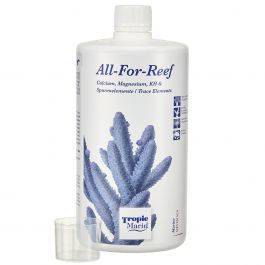Randy Holmes-Farley
Reef Chemist
View Badges
Staff member
Super Moderator
Excellence Award
Expert Contributor
Article Contributor
R2R Research
My Tank Thread
- Joined
- Sep 5, 2014
- Messages
- 67,503
- Reaction score
- 63,901
If your alk target is lower, lowering the dose is fine. If you alk target is near or above your current value, you might reduce the dose and add some sodium carbonate for alk. That said, 529 ppm calcium is fine.


















